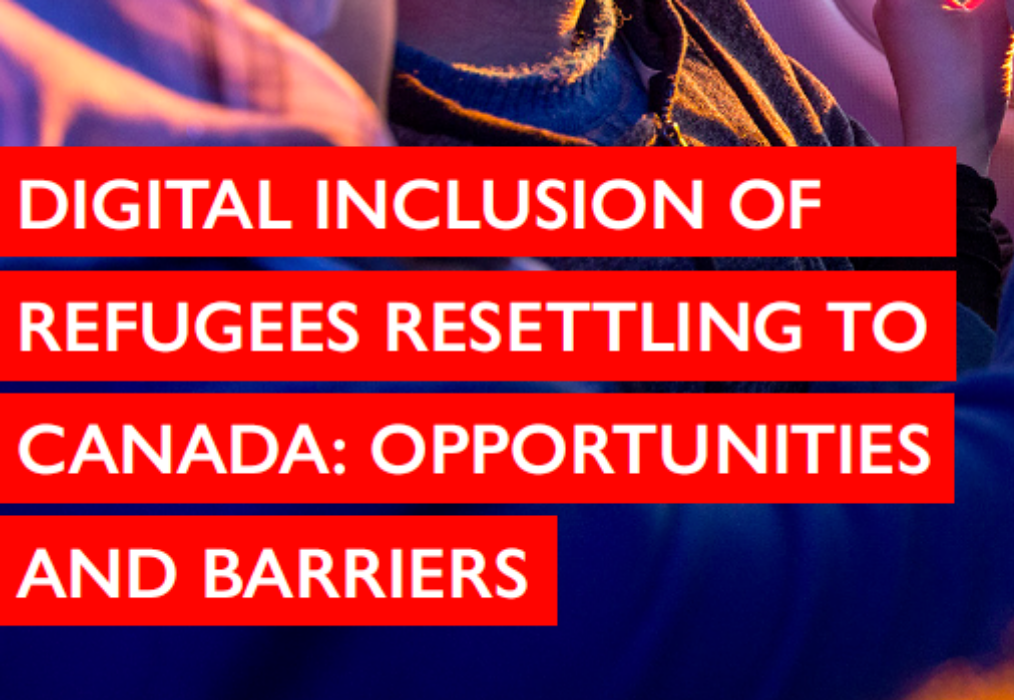There is now broad recognition that connectivity and access to digital tools and services are fundamental to inclusion and participation in society. The research study aims to assess and understand both the barriers and enablers of refugee’s access, connectivity, and ability to use digital training tools with a view to optimize digital inclusion in their resettlement journey.
This report provides insight into how refugees who participate in the Canadian Orientation Abroad (COA) programme are currently using digital tools in the pre-departure stage, and what challenges they face in doing so. Through a mixed-method approach of telephonic surveys and focused group discussions, the study elicited responses from over 300 refugees, in 22 locations, who were approved for resettlement in Canada.
The findings highlight that while 80 per cent of survey participants own mobile phones, ownership of other types of digital devices such as a laptops, desktop computers or tablets is comparatively low. Despite 70 per cent of survey participants having reliable access to internet, barriers such as cost and lack of digital literacy and skills, combined with factors related to disability, location, individual context, and gender need to be carefully considered and addressed to avoid the risk of excluding the most vulnerable as more digital approaches are adopted. The research also found that there are critical human elements needed to support COA participants that technology cannot replace, and that this reality should remain at the forefront of programme design and execution.
The report recommends awareness-raising, investment, and continued research and evaluation, in combination with capacity-building to enhance the digital literacy of refugees coming to Canada. This will help ensure that digital tools are accessible, impactful, and inclusive alongside the continued provision of the in-person pre-departure training.
Click here to read the full report.



